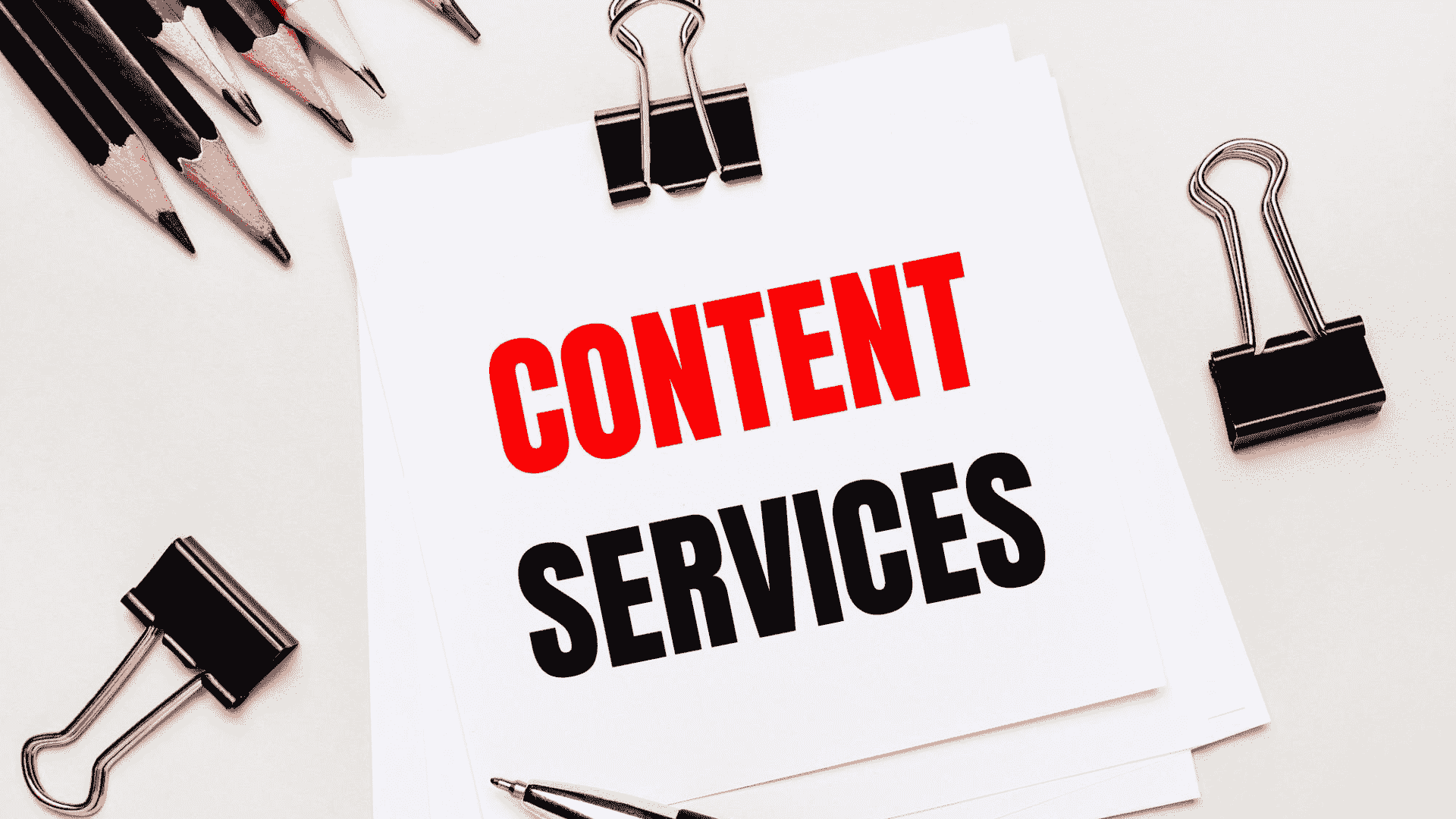Writing for social media for a small business, making press materials for an insurance company, and posting an essay on AI Ethics to Medium are all types of content writing. But what does content writing mean?
Content writing is creating and editing written content for the Internet. This includes blog posts, articles, social media posts, website text, and more. What connects all these writings is their purpose.
Content is made for people to read and enjoy, and writers create content that helps a brand connect with its audience. Keep reading to learn more about content writing and get some tips to improve your content writing.
What is content writing?
Content writing is all about creating, fixing, and sharing online content to get people interested in what you say. This can be blog posts, scripts for videos or podcasts, ebooks, press releases, product descriptions, landing pages, social media posts, and more.
When you do it right, content writing can turn readers into potential customers and potential customers into paying ones. So, regularly making valuable and exciting content is essential to help your business grow.
12 Tips to Take Your Content to the Next Level
Here are some of my favorite 12 tips to help you improve content writing!
1. Pick a Relevant Topic
When you write something, you should choose a topic that matters to your brand and the people you want to reach. Picking suitable topics helps you become known as an expert. This means people are more likely to pay attention to your business.
- Also, focusing on essential topics and showing what you know helps your website rank higher on Google. Google likes to rank websites that show Experience, Expertise, Authoritativeness, and Trustworthiness (E-E-A-T). To do this, you need to talk about things you understand.
2. Choose the Right Format
Written content comes in many different formats. Here are the best ones, according to our industry survey:
- Short-form articles: These are under 1,000 words and are perfect for covering a specific topic quickly.
- Success stories: These celebrate customers’ achievements with your product or service. Telling a good story makes this type of content very engaging.
- Long-form blog posts: These are over 1,000 words and allow you to explore a topic in detail. The best articles usually have about 1,152 words.
- Case studies: These are similar to success stories but present facts more analytically, showing a customer’s achievements with your product or service.
- Gated content: This is content that readers can access only after filling out a form. It’s suitable for gathering leads but limits who can see it.
- White papers are extensive studies informing readers about a particular product or service. They are commonly employed in business-to-business (B2B) content marketing.
- Product guides or manuals: These allow customers to utilize your goods more successfully and lessen the need for customer service support.
- Research reports: These provide detailed information about original studies and their findings. Businesses often publish the full report as a PDF and create a blog post with the key points.
To decide on the best format for a topic, check Google. For example, if you search “how to invest in stocks,” you’ll see that long-form articles are widespread. You can start with a format and then pick a topic.
Remember, different types of written content help you reach different audiences and achieve various goals.
3. Create an Outline
Before you start writing, make a plan. Begin with an outline. An outline is like a map for your writing. It helps you stay on track and avoid problems. So, here’s what you should do:
- Write a summary of what you want to create.
- Plan the structure and list the points you’ll include in each part.
- Gather valuable resources, like links and images.
- Taking these steps will make your writing more accessible and better!
4. Be Helpful
If there’s one thing you take away from our content writing advice, it’s the value of being helpful. Unhelpful material may harm your brand’s reputation, turn customers away, and lower your Google results.
Helpful information fulfills or surpasses the reader’s expectations, leaving them satisfied. Make sure your written content is:
- Actionable: Include detailed instructions and examples to help readers out.
- Comprehensive: Answer follow-up questions and recommend extra resources.
- Trustworthy: Only include reliable and up-to-date information.
- Targeted: Create it with your target audience’s needs and preferences.
Gather feedback from readers using polls or surveys and then act on it if possible. This is especially helpful when you’re first learning how to write content for websites.
5. Stand Out from the Competition
You need to make your content unique to stand out online and get more people interested in what you share. Here are some tips to make your writing stand out:
- Share your unique thoughts and ideas. This is called thought leadership.
- Tell personal stories and give behind-the-scenes looks.
- Do your research and share what you find.
- Write for a specific group of people who are interested in your topic.
- Present your ideas in a new or exciting way.
- Use images, videos, or templates to add more to your content.
- Make your writing more detailed and complete than others.
- Make sure your words are different from others, too.
By following these tips, you can make your writing stand out and get more people interested in what you have to say.
6. Add Relevant Keywords
Keywords are words and phrases that you type into search engines like Google. Adding relevant keywords to your website can help your site rank higher in search results. This means more people might see your website and become potential customers!
When you search for something, you have different reasons. This is called “Intent.” Here are some types of search intent:
- Navigational: You’re looking for a specific page, like searching for “Facebook login.”
- Informational: You want to learn more about a topic, like searching for “what is ctr.”
- Commercial: You’re researching to help you decide on a purchase, like searching for the “best rolling pin.”
- Transactional: You’re ready to take action, like searching for “buy Honda Accord.”
Here are some quick tips to help you use keywords in your content:
- Put the primary keyword in the title tag (the title in search results), preferably near the beginning.
- Use the main keyword in the first two sentences of your content.
- Include the main keyword in the URL slug (the end part of the URL).
- Use the term in subheadings and throughout your article.
- Use keywords as anchor text in internal links to your new page from other sites.
8. Structure Your Content Effectively
Structuring your writing is essential because it allows you and others to comprehend it better. Here are some suggestions to help you write better:
- Use subheadings, which are similar to titles, to organize your content. They help you manage your thoughts and make it easier for others to follow.
- Creating a table of contents is similar to creating a map that outlines the topic of your work. It helps readers know what to expect.
- Use anchor links shortcuts that help you jump to different parts of your writing. They make it easier to find specific information.
- Bullet points and tables are fabulous for listing things or comparing information. They make it easier for you and others to understand.
- Making your points in a logical order means putting your ideas in a way that makes sense. Start with the most important points first.
- Use images, videos, and other visuals can help you explain your ideas better. They make your writing more interesting too.
- Try to keep them to one or two sentences. This will make your writing easier to read and understand.
9. Check Your Spelling and Grammar
Correct spelling and punctuation make your work appear more professional and understandable. Grammarly and the Hemingway App provide extensive tips for enhancing your writing. These tools can help you improve your writing skills by giving feedback on each item you write.
It is also advisable to proofread your material. Try to do this a day or more after you’ve completed your draft so you can see it with new eyes. This might help you spot faults and enhance your writing.
10. Optimize Your Title Tag
Title tags, like the one shown below, are super important for two big reasons:
- First, better title tags can get you more clicks.
- Second, Google uses title tags to determine what your pages are about.
- Here are some top tips for making sure your title tags are just right:
- Ensure your title tag is the same as (or the same as) your headline.
- Put your main keyword near the beginning.
- Keep them short, under 60 characters, so they don’t get cut off.
- Look at what other people are doing with their title tags, and try to make yours stand out!
11. Write Compelling Meta Descriptions
Meta description is like a mini preview of a webpage. Even though it doesn’t directly make the Meta page rank higher on Google, it can make more people click on it! Here are some tips for writing a great meta description:
- Tell your readers exactly what they’ll find on your page
- Use words like “read” or “learn” to get them excited to click
- Look at what other people are writing in their meta descriptions to see how you can make yours stand out
- Make sure to include the main word or phrase that you want people to find your page with
- Remember, a good meta description can help more people find and click on your page!
12. Tell Readers What to Do Next
When you finish your story or article, telling your readers what to do next is good. You can ask them to read another story, sign up for your newsletter, or check out some products.
In marketing, writing is about making friends and getting people to do things. If someone reads your tale, they’re interested in your discussion. You may use Google Analytics to determine which concepts most apply to your viewers.
Conclusion
Content writing that captures people’s attention and keeps them interested is essential. It’s more than just placing words on a website; it’s about producing high-quality content that search engines value. When your content is high-quality, search engines such as Google will rank your website higher in search results, making it more straightforward for visitors to find you.
At Integrated IT Solutions, we specialize in content marketing services to help you reach your target audience, create more leads, and grow your online presence. Allow us to assist you in creating results-driven content!




